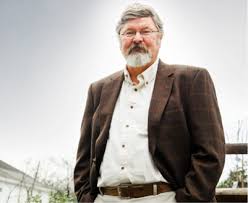
Washington, CT. Brains as Brawn have gotten we exiles from the Garden of Eden into a lot of trouble over the years. Though capable of spectacular expressions of beauty and love, we more frequently traffic in sordid acts that lie between a grandiloquent “axis of evil” on the one hand or the merely tawdry on the other. It is our wont to seek divinity but more often as not, we surrender to immediate physical compulsions far less noble. To strive would appear to be enough.
In his 1996 book “Forbidden Knowledge, From Prometheus to Pornography”, Roger Shattuck explores the human attraction to both the forbidden and divine. From the book-burning ” Librorum Prohibitorum” of 1559 to Montaigne’s concept of “Portee” or “reach” and Thomas Henry Huxley’s invention of the term “agnostic” to describe himself in opposition to the gnostics who were intent upon solving the riddle of existence, Shattuck explores our attempts at penetrating Huxley’s “insoluable” and the competing need for we humans to know and accept our limits. Shattuck dissects the history of our quest from the “ignoramibus”….that we should “remain ignorant” to the “libido sciendi, our “lust to know”. Faust, of course rears his head and here, Shattuck points not to the well-known Devil’s Bargain but to Goethe allowing the insatiable Faust to creep free under the nose of Mephistopheles simply for his “striving”. Heir to the Enlightenment, we practical and ever-busy Americans are students of the striver’s life, busily dreaming and lustily doing in a non-stop parade of commodified paradise. Tocqueville marveled about our enthusiastic physical expression but wondered what Faustian Bargain we might have transacted when we traded away our sentiment, reflective temperament and artisanal soul in favor of a restlessness attuned to the opportunities of a vast continent with a vigorous marketplace.
The Greeks….grandfathers of the Enlightenment….. they produced a term for it: “pleonexia”…a compulsion “beyond common hubris in refusing any limit, any horizon in an insatiable greed for the unattainable”. The wages of this bitter urge are ably dispatched within Edmund Burke’s satirical work “A Vindication of Natural Society”. Here, Burke pens perhaps the most stunning summary of human warfare in literature. Relentlessly accumulating, the death toll from the frequently baseless quest for empire quickly drives the reader into a cold sweat and deep anxiety over mankind’s blood-lust over the ages. If nature is “red of tooth and claw”, then what be her progeny man? Dayglow Red?
While the same old compulsions and calculations continue to mold our existence, there is something fundamentally different about life in this metallic yet atavistic era we call modernity. Today, what might have been called transgression just a few decades ago is now the conventional. Forbidden Knowledge is an invitation to wantonness rather than an instrument of self- control. To transgress the system of acceptable mores in place today….. this furious parade of popular culture……. is to turn transgression on its head and defy it in order to abide only the traditions of our fathers who ably cautioned us against this moveable feast of want and desire. Everywhere one cares to look, we are confronted with all manner of perverse and quixotic human behavior that is either applauded or relentlessly dissected as though one were choosing flavors in an ice cream parlor of darkly delectable diversion. We are striving automatons and it is little wonder then that there is at long last, an accepted standard of cognition that is more dissonant than cognitive. We accumulate image upon image, sound upon sound, sensation upon sensation in a tableau that would have caused Tocqueville to reappraise his conception of our physicality as entirely too timid. The more we witness, the less we seem to know until the very basis of our political, social and economic system begins to fracture and crumble under the weight of competing interests whose continued existence requires a prevailing lack of resolution. Security is Liberty, Free Market is Corporate Protectionism, Meritocracy is Leveling, Change is Stasis, Education is the pursuit of a standardized sameness and Debt is Commodity. In Arkansas, a pastor loses himself in the notion that liberty is defiance and entreats his flock to lock and load and commune with “Guns and God”. What would Jesus shoot?
Such are the costs and benefits of the “Pursuit of Happiness” when not informed by the calming check of moderation. When “received wisdom” is branded but a kind of tired “romanticism”, the headlong pursuit of this atomized thing we call modernity becomes the only vigorous outlet for a person of even modest aspirations. With this atomization comes a kind of voluminous and ever-expansive ordering that excels at creating the “niche” where a person might sanctify his or her transgression but do so within a welcoming herd. This, indeed, is a life that has “it all” while gleaning little , if anything from the experience of an industrialized abandon. The ongoing fixation upon the sad fate of the pop star Michael Jackson is a case in point. Here we have a man-child who exploded onto the scene during the Viet Nam War era with his siblings and brought enthusiastic songs of love and joy with a back beat into a scene of increasing gloom. As pop culture divided and redivided, so too did this obviously fragile soul who , by all appearances, could never find repose. He delivered joy and energy in large doses but there was always something darkly promethean about him as he attempted to obliterate his own face and build it anew. Before the end, one fully expected to see Mr. Jackson slithering and singing his heart out in a final extravaganza of “America the Drunk” as he donned scarlet tights and piercings under a Gold Lame Conquistador hat while directing Fighter Jets off the deck of the U.S.S. Enterprise in a sprightly little number entitled “U.S. Attacks itself because there are a lot of Opportunity Targets”.
And what of the transgressors of the prevailing transgression? Who can say but psychosis and disillusion and perhaps even, as Caleb Stegall asserts, “Dispossession” becomes the boon companion. When the traditionalist is your radical, it might not be the End of History but it will be the end of history as we know it. One can only hope that the earth is round for a reason. Circling back to a new dawn is as old as time.
Fortunately, one of the great benefits of this noisy spectacle of transgression and atomization we mistakenly call a culture is that it is vicarious at essence and we can simply turn it off at will. Sure, it is accumulating an omnipotent quality that threatens to steamroll any last shred of dignity and reality out of our collective experience but it seems to me that at some point , all this fascination with the salacious and tawdry will become overwhelmingly banal. Then , all eyes will be trained upon those rebellious and oddball traditionalists who seem to not give a rat’s patootie about what era they inhabit because they look beyond era to basic truths and have a discriminating eye for the enduringly beautiful whether it be from the last 10 minutes or 2009 years before that. Nature informs us in like manner. she endures all manner of perturbation with aplomb and does not waste time getting to work and recovering once some “improvement ” has had its way with it.

More importantly, there is not a war between this essentially quibbling notion of modernity and some prosaic traditional antagonist. The very argument is a relentless tedium. As case in point, I stand in that marvelous stairwell of the British Art Museum at Yale. Designed by the mystic Louis Kahn, a modern classicist. The building is a concrete , steel and Beech-wood tour-de-force in motion, light and space. Nothing is sidelined, there is a loving hand in design everywhere , including the stairwell I mentioned. As you ascend the stairwell between enjoying Paul Mellon’s discriminating taste in everything from Turner to Constable and Francis Bacon, you are treated to a lesson in both compression and release…ascent and descent within a square within a circle. These ancient forms known by Aristotle remain modern in Kahn’s deft and discriminating hand as he welds an Ockhams Razor in the building arts. As you look up through the glowing glass block skylight, decorating the interior of the cold concrete walls …and their Roman solidity…… with a fluid of warmly warped light, your mind is full of images that link Aeschylus to Corbusier, el Greco to Turner and Picasso. A certain release can come to you as it is revealed that modernity, this thing we have used as a divorce from tradition is neither a divorce nor something separate and triumphant over tradition. Looking up into the light, you sense that it is all just movement and that what is needed within this concept of modernity is a weight that can steady it more than counterbalance it. It is that weight St. Augustine acknowledged when he stated “My weight is my love”.
We will find our liberty in this beautiful land of freedom’s most fertile home when we understand that the greatest independence comes when we indenture ourselves to the welfare of our fellow and we do so not in pity or angst but in the respect and love that comes with Independence AND Community. This is the timeless circle of a man who gives equal weight to mind, spirit and physical body. Wishing to explode time, we have become enslaved by a niggardly view of it. Time has ensnared us, frozen us in a notion of triumph and victory. We need now a life free of the limiting baggage of epoch. It is a life of simultaneous thrill and reflection….of received wisdom and wonder…..a life in simple love of life, in all it’s magnificent forms. That Indies of our imagination and faith is , and has always been a life In Dios.





5 comments
Katherine Dalton
Ah, Mr. Sabin, let me speak for a moment out of the silent majority who read but comment not. Thank you for an intemperate ode to temperance, and a Rococo appreciation for Kahn’s restrained stairway. May your roots crack the concrete there in your adopted Connecticut.
By the way, we had a bring-your-gun-to-church service here recently in KY, only everyone attending had to show the gun was unloaded.
regards–
Bob Cheeks
D.W. I thought, at first, you were that delightfully unique philosopher who, it is said, travels to the beat of his own drum. But, upon a more thorough inquiry, it’s apparant that you travel to the beat of your own orchestra!
I am searching just now, among the by-roads of this rural clime, for someone, anyone really, engaged in the act of smoking a semi-decent cigar, that I might stand near them, innocently breathing in the foul smoke.
Actually, you’re right. Albert’s comment was brilliant and with an economy of words. And, yes, Jesus, indeed, does love you!
D.W. Sabin
Well Cheeks, it would appear that it is you, me and the refreshingly brief Albert against the world. Your continued enthusiasms are appreciated . However…. after mowing the lawn and catching my breath with a first dip into the gift of a fresh rough sawn box of Edge Robustos, aged five years and just now spirited out of the Honduras in the midst of some hiccup of a Bolivarian Hangover by a Honduran Campesino I enjoy the company of…the thought occurs that when my pal Giovanino gave me his Christmas gift last December, the gift was pregnant with pointed meaning at his pontificating friend who has a pathological fixation upon the polity. Inside a wrapping of the front page of the Corriere della Sera, documenting but another of Berlosconi’s charming episodes was a bumper sticker that intoned:
“Jesus Loves You, Everyone Else Thinks You’re an A**h*le”.
Gio, of course, laughed like hell when I opened it.
Albert
Thank you.
Bob Cheeks
D.W. is the man raging against the distortions of his age, the man who refuses to be captured by the sundry pathologies of society even if he must stand alone unto death.
He uses the misanthrope’s cudgel rather effectively but as a means of concealing the existential nature of the man.
Here, however, he shows us who he is. Not just the Classical Greek but a higher being, and not so much the Aristotlian spoudaios (aner), the fully develped human being, or the zoon noun echon, the living being possessing Nous, rather the true philosopher, the lover of wisdom in the sense of transcendental truth, and perhaps the Viator, that being symbolized in the Christian community as the Wanderer who seeks and quests for eschatological perfection.
The essay stands for itself. It is an expression of an old and now increasingly rare art, a man rising in resistance to the disorders of his age, and in so doing not only seeking but in the instant of the intersection of time and the timeless, revealing the truth of existence.
I refuse to judge who is the wisest, the most articulate among this stable of very gifted writers and thinkers. Suffice it to say, it is a intellectual pleasure to roam the corridors of this site.
Bravo, D.W….dude, you got me on this one!
Comments are closed.